Hemodialysis in Turkey
Healthy Türkiye helps you find the best hemodialysis in Turkey at affordable prices and adopts a 360-degree service approach in all areas of health through affiliated hospitals.
- Homepage
- Medical Treatment
- Hemodialysis in Turkey
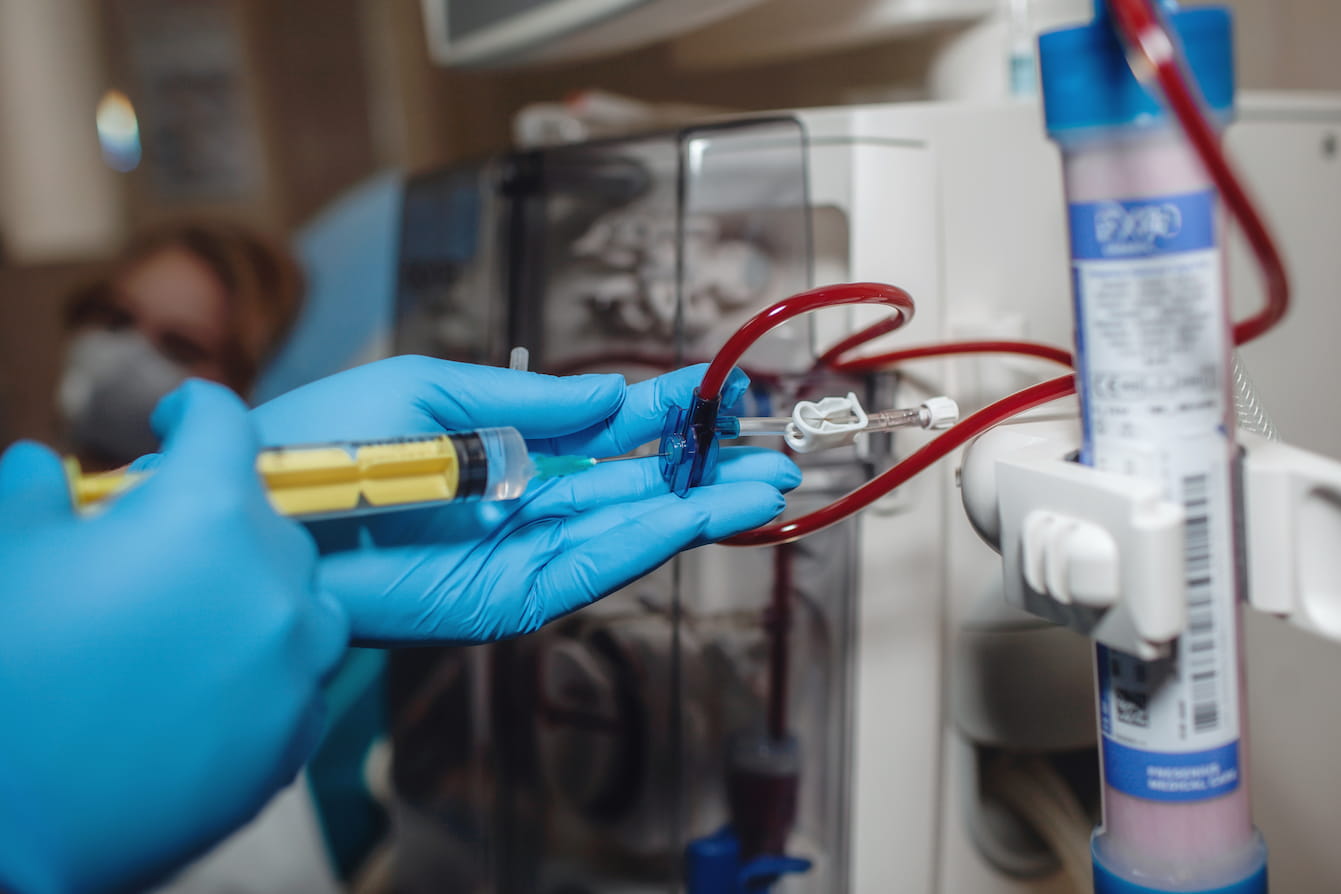
About Hemodialysis in Turkey
In Turkey hemodialysis, an artificial kidney (hemodialyzer) is used to remove waste and extra chemicals and fluid from your blood. To get your blood into the artificial kidney, the doctor needs to make access to your blood vessels. Access is done by minor surgery to your arm or leg.
Sometimes, access is made by joining an artery to a vein under the skin to make a bigger blood vessel called a fistula. But, if your blood vessels are not adequate for a fistula, the doctor may use a soft plastic tube to join an artery and a vein under your skin. This is called a graft. Rarely, access is made by means of a narrow plastic tube, called a catheter, which is inserted into a large vein in your neck. This type of access might be temporary but is sometimes used for long-term treatment.
Hemodialysis is usually done three times a week, for 3 to 4 hours a day in Turkey, depending on how well the kidneys work, and how much fluid weight they have gained between treatments.
The kidneys’ main job is to remove toxins and extra fluid from the blood. If waste products build up in your body, they can be dangerous and even cause death. Hemodialysis in Turkey does some of the jobs of the kidneys when they stop working well. Hemodialysis can remove extra salt, water, and waste products so they don’t build up in your body. It can keep safe levels of minerals and vitamins in your body. Also, hemodialysis in Turkey, can help control blood pressure and produce red blood cells.
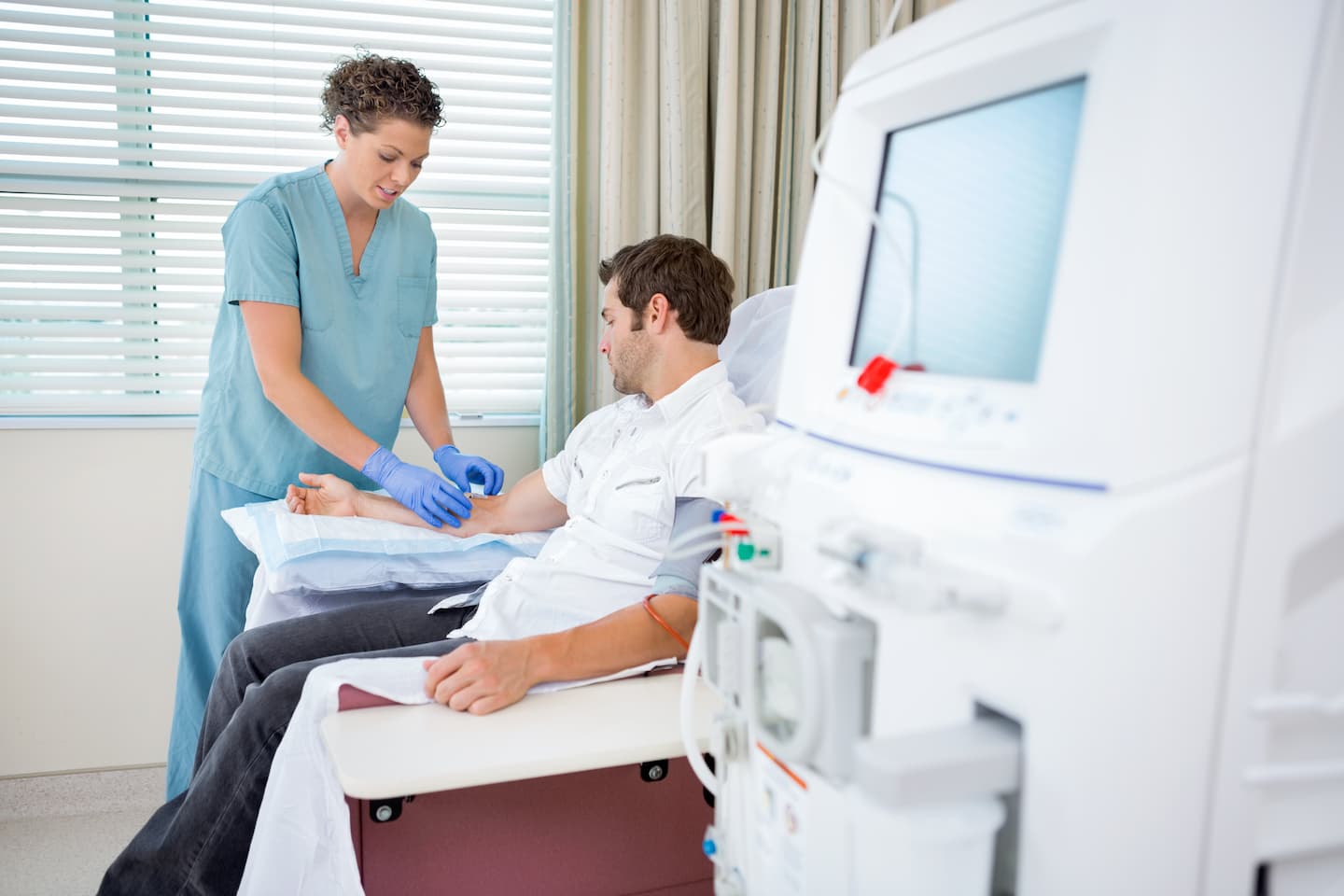
Hemodialysis Procedure in Turkey
Hemodialysis in Turkey is a process of purifying the blood of a person whose kidneys are not working normally. Hemodialysis achieves the extracorporeal removal of waste products such as creatinine and urea and free water from the blood when the kidneys are in a state of kidney failure. An alternative method for extracorporeal separation of blood components such as plasma or cells is apheresis.
In Turkey, hemodialysis can be an outpatient or inpatient therapy. Routine hemodialysis can be conducted in a dialysis outpatient facility, either a purpose-built room in a hospital or a dedicated, stand-alone clinic. Less frequently hemodialysis can be done at home. In Turkey, Hemodialysis in a clinic is initiated and managed by specialized staff made up of nurses and technicians; dialysis treatments at home can be self-initiated and managed or done jointly with the assistance of a trained helper who is usually a family member.
A healthy person’s kidneys should filter around 120-150 quarts of blood each day. If the kidneys are not working healthily, waste builds up in the blood. Eventually, this can lead to coma and death. Besides, in Turkey hemodialysis prevents the waste products in the blood from reaching hazardous levels. It can also remove toxins or drugs from the blood in an emergency setting. You can get information about the whole hemodialysis procedure by contacting Healthy Türkiye. With our expert team, you can discuss which option is most suitable for your needs.
Why is Hemodialysis Done in Turkey?
Your doctor will help determine when you should start hemodialysis based on several factors, including your overall health, kidney function, symptoms, quality of life, and personal preferences.
When you notice signs and symptoms of kidney failure (uremia), such as nausea, vomiting, swelling, or fatigue, your doctor uses your estimated glomerular filtration rate (eGFR) to measure your level of kidney function. The eGFR is calculated using your blood creatinine test results, sex, age, and other factors. This measure of your kidney function can help to plan your treatment procedure, including when to start hemodialysis.
Hemodialysis can help your body control blood pressure and maintain the proper balance of fluid and various minerals like potassium and sodium in your body. Normally, hemodialysis should begin well before your kidneys have shut down to the point of causing life-threatening complications. Common causes of kidney failure include:
High blood pressure
Kidney inflammation or glomerulonephritis
Kidney cysts
Inherited kidney diseases
Long-term use of nonsteroidal anti-inflammatory medications or other drugs that could harm the kidneys
Besides, your kidneys may shut down suddenly after a severe illness, complicated surgery, heart attack, or other serious problem. Ask Healthy Türkiye healthcare team for more information about your options. This is an individualized decision because the benefits of dialysis may vary, depending on your particular health issues.
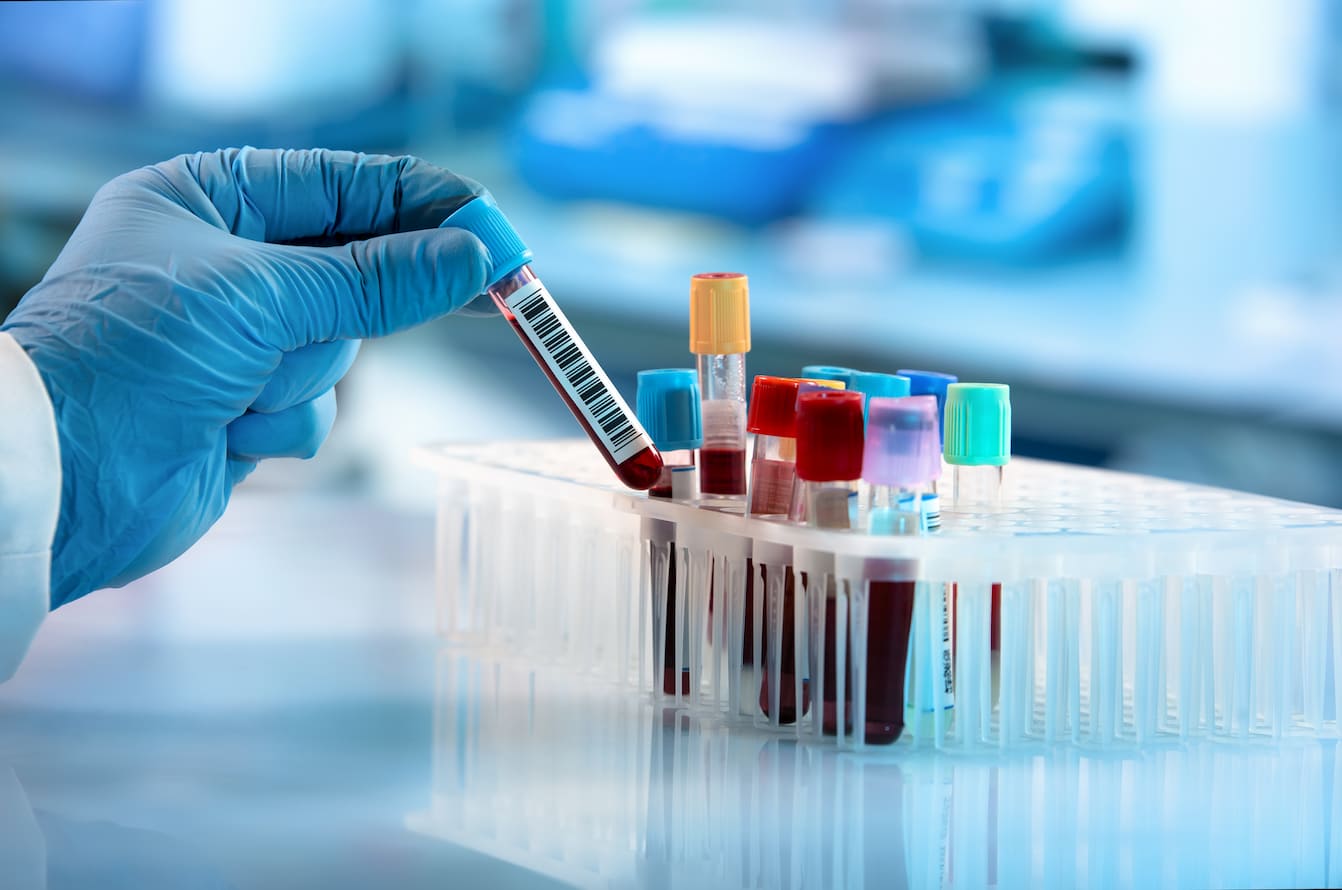
We Care About Your Health
Healthy Türkiye provides the best for your health and comfort. You will feel privileged with us.
7/24 Quality Personal Assistance Throughout Your Journey
Customizable for You All-Inclusive Packages
Get the Right Advice for your Health
How Does Hemodialysis Work?
The dialyzer is the key to the hemodialysis procedure. The dialyzer is called the artificial kidney because it filters the blood, this is a job the kidneys used to do. The dialyzer is a hollow plastic tube about a foot long and three inches in diameter that contains many tiny filters.
There are two sections in the dialyzer; the section for dialysate and the section for the blood. These two sections are divided by a semipermeable membrane so that they don’t mix together. A semipermeable membrane has microscopic holes that allow just some substances to cross the membrane. Because it is semipermeable, the membrane allows water and waste to pass through but doesn’t allow blood cells to pass through.
Dialysate, also called dialysis fluid, dialysis solution, or bath, is a solution of pure water, electrolytes, and salts like bicarbonate and sodium. The purpose of dialysate is to pull toxins from the blood into the dialysate and the way this work is through a process called diffusion. In the blood of the hemodialysis patient, there is a high concentration of the waste product, while the dialysate has a low concentration of the waste product.
Due to the difference in concentration, the waste will move through the semipermeable membrane to create an equal amount on both sides. The dialysis solution is then flushed down the drain along with the waste product. Also, the electrolytes in the dialysis solution are used to balance the electrolytes in the patient’s blood. The extra fluid is removed through a process called filtration, the fluid is pushed off by higher pressure on the blood side than on the dialysate side
Prepare for Hemodialysis in Turkey
Hemodialysis is a complex treatment that takes time to understand. Because most, patients don’t feel sick until shortly before starting hemodialysis, you’ll likely still feel well when your doctor first talks to you about getting ready for hemodialysis. No one wants to start you on dialysis before you need it, but it takes time to prepare for hemodialysis.
You should protect the veins in your arm prior to starting dialysis. If you have kidney disease, remind health care providers or nurses to draw blood and insert IV lines only in veins below your wrist; for instance, ask them to use a vein in the back of your hand. If an arm vein is damaged by an IV line or by repeated blood draws, that vein can not be able to be used for hemodialysis.
Vascular Access Surgery
One important step before starting hemodialysis treatment in Turkeyis having minor surgery to create vascular access. The vascular access will be your lifeline through which you’ll connect to the dialyzer. Dialysis moves blood through the filter at a high rate and blood flow is very strong. This machine withdraws and returns almost a pint of blood to your body every minute. The access will be the part of your body where you insert needles to allow your blood to flow from and return to your body at a high rate during dialysis.
Three types of vascular access exist:
The arteriovenous (AV) fistula
The AV graft
The catheter
Work closely with your nephrologist and vascular surgeon to make sure the access is in place in plenty of time. Healing can take several months. The aim is for your access to be ready for use when you are ready for dialysis.
AV Fistula: The common type of long-term access is the AV fistula. A surgeon connects an artery to a vein, generally in your arm, to create an AV fistula. The artery is a blood vessel that carries blood away from your heart and the vein is a blood vessel that carries blood back toward your heart. When the surgeon connects an artery to a vein, the vein grows wider and thicker, making it easier to place the needles for hemodialysis.
Also, the AV fistula has a large diameter that allows your blood to flow out and back into your body quickly. The aim is to allow high blood flow so that the largest amount of blood can pass through the dialyzer. The AV fistula is considered the best method because it:
provides the highest blood flow for dialysis
is less likely to become infected or clot
lasts longer
people can go home after outpatient surgery.
AV graft: If problems with your veins prevent you from having an AV fistula, you may have an AV graft instead. In creating an AV graft, your surgeon uses a man-made tube to connect an artery to a vein. You can use an AV graft for hemodialysis soon after surgery. But, you’re more likely to have problems with infection and blood clots. Repeated blood clots can block the flow of blood through the graft and make it hard or impossible to have hemodialysis.
Catheter for temporary access: If your kidney disease has progressed quickly, or you have not had vascular access placed before you need dialysis, you may need a venous catheter which is a small, soft tube inserted into a vein in your neck, chest, or leg near the groin as a temporary access. A nephrologist or an interventional radiologist places the venous catheter while you’re in a hospital or at an outpatient clinic. You can receive local anesthesia and medicine to keep you calm and relaxed during the procedure.
During the Hemodialysis in Turkey
During treatments, you sit or recline in a chair while your blood flows through the dialyzer. You can use the time to watch TV or a movie, read, or nap, and if you receive hemodialysis at night, you can sleep during the procedure.
Preparation: Your weight, blood pressure, pulse, and temperature are checked then the skin covering your access area is cleansed.
Starting: During hemodialysis, two needles are inserted into your arm through the access area and taped in place to remain secure. Each needle is attached to a flexible plastic tube that connects to a dialyzer. Through a tube, the dialyzer filters your blood a few ounces at a time, allowing waste products and extra fluids to pass from your blood into a cleansing fluid called dialysate. The filtered blood returns to the body through the second tube.
Symptoms: You may experience nausea and abdominal cramps as excess fluid is pulled from your body especially if you have gained a significant amount of fluid in between dialysis sessions. If you’re uncomfortable during the procedure, can ask your care team about minimizing side effects by such measures as adjusting the speed of your hemodialysis, your medication, or your hemodialysis fluids.
Monitoring: Because blood pressure and heart rate can fluctuate as excess fluid is drawn from your body, your blood pressure and heart rate will be checked several times during each session.
Finishing: When the hemodialysis procedure is completed, the needles are removed from your access site and a pressure dressing is applied to the site to prevent bleeding. Your weight might be recorded again. Then you’re free to go about your daily activities until your next session.
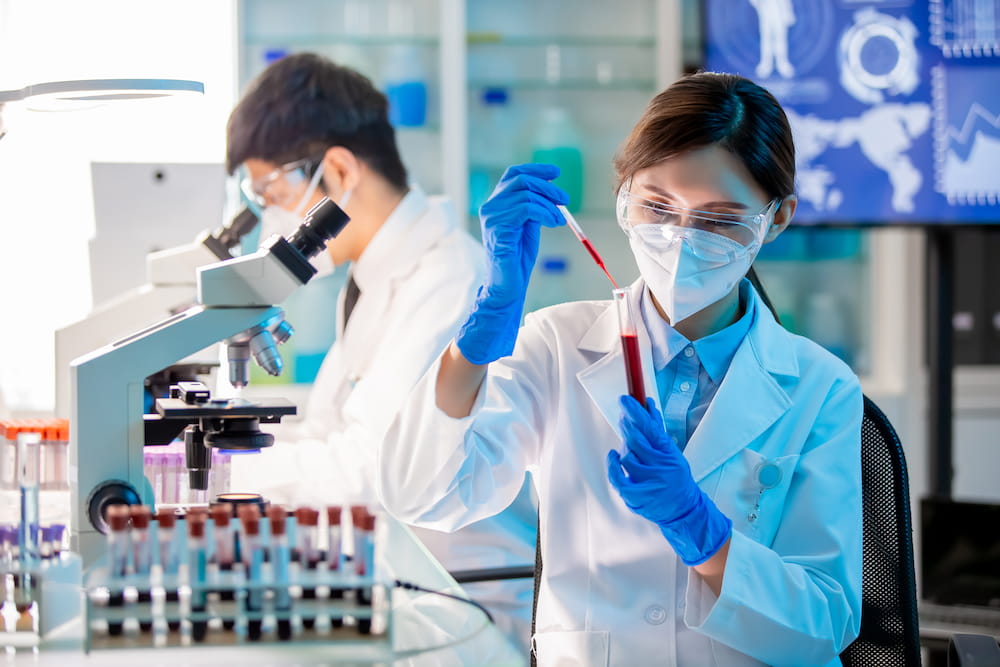
Home Hemodialysis in Turkey
Hemodialysis can be performed at home and you may do the treatments yourself. However, you should have someone helping you. Home hemodialysis may help you to fit your treatment into your daily schedule. Experts say that the more a person knows about treatment and the more independent a person is, the better one is likely to do on dialysis. Three types of hemodialysis can be performed at home. They are:
1. Conventional Home Hemodialysis in Turkey
This is done three times a week for 3-4 hours or longer each time. You and your care partner are should be trained before this to do dialysis safely and to handle any problems that may come up. Training can take several weeks to a few months.
2. Short Daily Home Hemodialysis in Turkey
This is generally done 5-7 times a week using machines designed for short, daily home treatment. Treatments mostly last about two hours each. You and your care partner are should be trained over several weeks. Because dialysis is done more, less fluid generally needs to be removed each time. This situation reduces symptoms like headaches, nausea, cramping, and feeling “washed out” after treatment. Additionally, control of certain blood chemicals, such as phosphorus, is much better with daily dialysis.
3. Nocturnal Home Hemodialysis in Turkey
This long, slow treatment is done at night while sleeping. It may be done 6 nights a week or every other night, depending on what your doctor prescribes for you. Treatments often last about 6-8 hours. You and your care partner are should be trained over several weeks. More hours of hemodialysis each week helps to remove more waste.
In Turkey, it may also be possible to combine daily and nocturnal home hemodialysis. Whether you can combine procedures depends on your needs, your medical condition, and the type of dialysis machine you have. There are several benefits to home hemodialysis:
Home hemodialysis lets you set your own schedule. You can choose treatment times to fit other activities, such as going to work or caring for a family member. Often, patients give themselves more dialysis, which means that they:
feel better and have better blood pressure control,
have less restriction on diet and fluids,
save time because they do not have to travel to and from the dialysis clinic, and;
make fewer trips to the clinic.
Physical Health with Hemodialysis in Turkey
People on dialysis are much more likely than the general population to develop heart and blood vessel disease. This higher risk is due to kidney disease and other health problems like diabetes and high blood pressure. It is very important that you do what you can to prevent or manage heart and blood vessel problems. A treatment plan should help you:
Get enough dialysis: Getting enough dialysis is important to help you feel good. Some special blood tests are done each month to help the doctor decide if you are getting enough. One test is Kt/ V; the other is the urea reduction ratio (URR). If you are getting enough dialysis, your Kt/V should be at least 1.2. and if URR is used, it should be 65 percent or more. If your numbers are too low, one possible cause might be that your access is not working properly. You should ask your dialysis team to check. Another reason is that you simply need more time on dialysis to get rid of waste.
Keep blood pressure control: High blood pressure can cause kidney disease. It is also a complication of kidney disease and if your blood pressure is not controlled, it can cause heart and blood vessel problems, such as hardening of the arteries and enlargement of the heart. Limiting fluid and salt can intake will help keep your blood pressure under control.
The target blood pressure for dialysis patients before a dialysis treatment is less than 140/90 and the target blood pressure after a dialysis treatment is less than 130/80. The doctor or nurse checks if your blood pressure readings are on target. If you check your own blood pressure, you should keep a record of your daily blood pressure readings and show this to your doctor at each visit.
The blood pressure pills generally preferred for people with CKD are called angiotensin-converting enzyme (ACE) inhibitors or angiotensin receptor blockers (ARBs). Following the doctor’s advice, taking your medications as prescribed, eating right, and exercising will go a long way toward achieving healthy blood pressure.
Reduce high cholesterol levels: High blood levels of fats like cholesterol increase your chance of developing heart and blood vessel problems. You should have blood tests to check for total cholesterol and other fats in your blood. If your levels are too high, you might need to follow a low-fat diet and do more exercise. Some patients may also need to take medication to help lower cholesterol.
Follow a healthy diet: Eating correctly will help you stay healthy. It is important for your health that you have the right amount of protein, calories, fluids, vitamins, and minerals each day. A dietitian will help plan your meals to make sure you get the proper balance of nutrients. Your doctor and dietitian can also ask you to reduce your intake of foods that are high in saturated fats and cholesterol, such as eggs, whole milk, most cheese, and fried foods. Foods high in potassium and phosphorus also need to be limited, as high blood potassium and phosphorus can be harmful.
Eating foods that are rich in heart-healthy omega-3 fatty acids may be helpful, these include cold-water fish like salmon, albacore tuna, lake trout, and sardines, and other foods like flaxseed oil, canola oil, and walnuts. Those of you on a protein- or potassium-modified diet should speak to your doctor and dietitian before making any changes in your diet.
Treat anemia: Most patients with kidney disease will develop anemia. Anemia means having a low red blood cell count and red blood cells carry oxygen from your lungs to all parts of your body to give you the energy you need for your daily activities. When you have kidney disease, the kidneys cannot make enough of an important hormone called erythropoietin (EPO). EPO tells your body to make red blood cells and without enough EPO, your red blood cell count will drop and anemia will develop.
Anemia disease may make a person feel tired, look pale, have a poor appetite, have trouble sleeping, be short of breath and have a rapid heartbeat. Like high blood pressure, anemia can also lead to a heart problem called left ventricular hypertrophy. Ventricular hypertrophy is a thickening of your heart muscle’s main pumping chamber and it happens because the left ventricle gets larger from overwork. Treating anemia helps get your heart healthy.
The doctor can tell if you have anemia by measuring your hemoglobin level. When you are on hemodialysis, your hemoglobin is measured on a regular basis to check for anemia. The aim of anemia treatment is to keep your hemoglobin level between 11 and 12.
Keep important minerals like calcium and phosphorus in balance: These important minerals can get out of balance when you have CKD, as a result, bones may lose calcium and become weak over time. Some calcium and phosphoruses may end up in parts of your body where they do not belong, like your heart and blood vessels. This makes the blood vessels get stiffer and narrower. When this happens, you are at increased risk for a heart attack or stroke. There are drugs to treat the bone and mineral disorders that come with CKD.
Increase physical activity: You should ask your doctor about an exercise program that is right for you. Regular exercise helps to:
Lower cholesterol
Control blood sugar levels if you have diabetes
Reduce high blood pressure
Lose excess weight
Improve the health of your heart and lungs
Increase your energy level
Improve emotional health
Control blood sugar if you have diabetes: Diabetes happens when your body does not make enough insulin or cannot use insulin properly. Insulin is a hormone that controls the amount of sugar in the blood. A high blood sugar level may cause problems in many parts of your body. Diabetes is the most common reason for kidney failure. With diabetes, the small blood vessels in the body become damaged. This can lead to the hardening of the arteries and increase the chances of heart attack and stroke. When the blood vessels in the kidneys are damaged, your kidneys can not clean your blood properly. Protein is in your urine, and waste products build up in your blood.
Also, diabetes may damage your nervous system. This can cause difficulty in emptying your bladder and the pressure resulting from a full bladder can back up and injure the kidneys in people not yet on dialysis.
Maintain emotional health: At times, you may feel depressed, or angry. Although these feelings are normal, they might make it harder to follow your treatment plan and return to a normal routine. Also, negative feelings may increase your chance of getting heart disease or making it worse. It is important to get treatment if you have these feelings.
Stop smoking: If you are a smoker, should ask your doctor about a program to help you quit. Smoking raises the risk of getting cancer, breathing problems, high blood pressure, heart and blood vessel disease, and many other problems. Smoking is a major risk factor for heart attack and stroke. It can interfere with medicines used to treat high blood pressure. Uncontrolled or poorly controlled high blood pressure is a leading cause of kidney disease. Besides, smoking slows the blood flow to vital organs like the kidneys and can worsen already existing kidney disease.
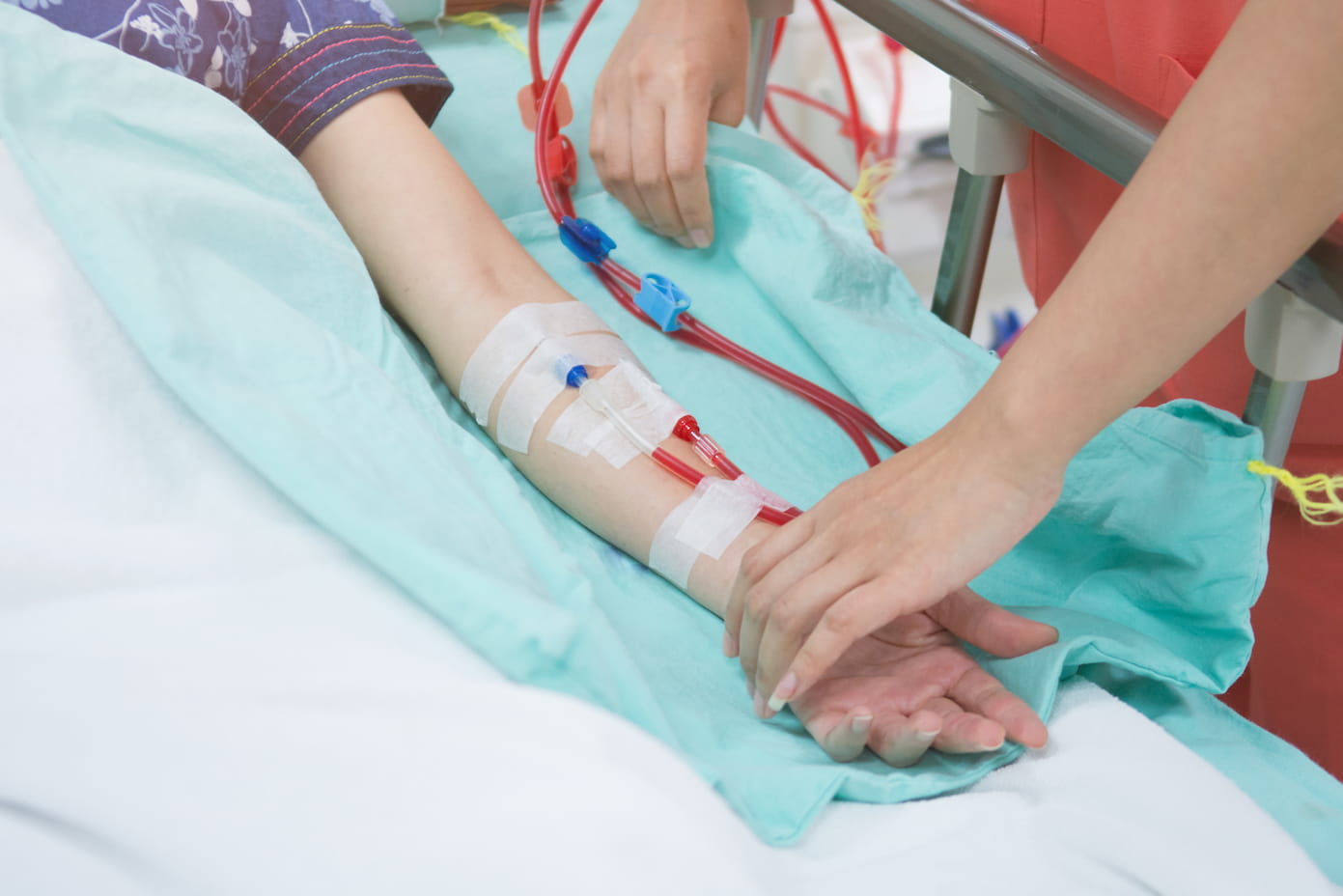
2026 Cost of Hemodialysis in Turkey
All types of medical attention like hemodialysis are very affordable in Turkey. Many factors are also included in determining the cost of hemodialysis in Turkey. Your process with Healthy Türkiye will last from the time you decide to have hemodialysis in Turkey until the time you are fully recovered even if you are back home. The exact hemodialysis procedure cost in Turkey depends on the type of operation involved.
The cost of hemodialysis in Turkey does not demonstrate many variations in 2026. Compared to costs in developed countries like the United States or the UK, hemodialysis costs in Turkey are relatively low. So, it’s no wonder patients from across the world visit Turkey for hemodialysis procedures. However, the price is not the only factor affecting choices. We suggest looking for hospitals that are safe and have hemodialysis reviews on Google. When people decide to seek medical help for hemodialysis, they will not only have low-cost procedures in Turkey, but also the safest and best treatment.
At clinics or hospitals contracted with Healthy Türkiye, patients will receive the best hemodialysis from specialist doctors in Turkey at affordable rates. Healthy Türkiye teams to provide medical attention hemodialysis procedures and high-quality treatment to patients at a minimum cost. When you contact Healthy Türkiye assistants, you can get free information about the cost of hemodialysis in Turkey and what this cost covers.
Why Choose Turkey for Hemodialysis?
Turkey is a common choice among international patients seeking advanced hemodialysis. Turkey’s health procedures are safe and effective operations with a high success rate like hemodialysis. The increasing demand for high-quality hemodialysis at affordable prices has made Turkey a popular medical travel destination. In Turkey, hemodialysis is performed by highly experienced and trained doctors with the most advanced technology in the world. hemodialysis is done in Istanbul, Ankara, Antalya, and other major cities. The reasons for choosing hemodialysis in Turkey are as follows:
High-quality hospitals: Joint Commission International (JCI) accredited hospitals have dedicated hemodialysis units that are specially designed for patients. International and national strict protocols provide effective and successful hemodialysis for patients in Turkey.
Qualified experts: The expert teams include nurses and specialist doctors, together to carry out hemodialysis according to the patient’s needs. All the included doctors are highly experienced in performing hemodialysis.
Affordable price: The cost of hemodialysis in Turkey is affordable compared to Europe, the USA, the UK, Singapore, Australia, etc.
The high success rate: Highly experienced specialists, the best available technology, and stringently followed safety guidelines for post-operative care of the patient, resulting in a high success rate for hemodialysis in Turkey.
All-Inclusive Package for Hemodialysis in Turkey
Healthy Türkiye offers all-inclusive packages for hemodialysis in Turkey at much lower prices. Extremely professional and experienced doctors and technicians carry out high-quality hemodialysis. The cost of hemodialysis in European countries can be quite expensive, especially in the UK. Healthy Türkiye provides cheap all-inclusive packages for a long and short stay of hemodialysis in Turkey. Because of many factors, we can provide you with many opportunities for your hemodialysis in Turkey.
The price of hemodialysis differs from other countries due to medical fees, staff labor prices, exchange rates, and market competition. You can save much more in hemodialysis compared to other countries in Turkey. When you purchase the hemodialysis all-inclusive package with Healthy Türkiye our healthcare team will present hotels for you to choose from. In hemodialysis travel, you will have the price of your stay included in the all-inclusive package cost.
In Turkey, when you purchase hemodialysis all-inclusive packages through Healthy Türkiye, you will always receive VIP transfers. These are provided by Healthy Türkiye, which is contracted with highly qualified hospitals for hemodialysis in Turkey. Healthy Türkiye teams will organize everything about hemodialysis for you and have you picked up from the airport and safely brought to your accommodation.
Once settled in the hotel, you will be transferred to and from the clinic or hospital for hemodialysis. After your hemodialysis has been successfully completed, the transfer team will return you to the airport in time for your flight home. In Turkey, all packages of hemodialysis can be arranged upon request, which relaxes the minds of our patients.
The Best Hospitals in Turkey for Hemodialysis
The best hospitals in Turkey for hemodialysis are Healthy Türkiye, Memorial Hospital, Acıbadem International Hospital, and Medicalpark Hospital. These hospitals attract patients from all over the world seeking hemodialysis due to their affordable prices and high success rates.
Best Doctors and Surgeons in Turkey for Hemodialysis
The best doctors and surgeons in Turkey for hemodialysis are highly skilled professionals who offer specialized care and advanced procedures. With their expertise and state-of-the-art techniques, these specialists ensure that patients receive high-quality hemodialysis and achieve optimal health results.

Frequently Asked Questions
There are two types of dialysis. In hemodialysis, blood is pumped out of your body to an artificial kidney machine, and returned to your body by tubes that connect you to the machine and in peritoneal dialysis, the inside lining of your own belly acts as a natural filter.
There are 3 main types of dialysis: in-center hemodialysis, home hemodialysis, and peritoneal dialysis.
The average life expectancy on hemodialysis is 5-10 years, however, many patients have lived well on dialysis for 20 or even 30 years.
This varies from person to person. People who stop dialysis may live anywhere from one week to several weeks, depending on the amount of kidney function they have left and their overall medical condition.
The most common medication is calcium carbonate. It must be taken at the beginning of each meal.
Indications to commence dialysis are: intractable hyperkalemia; acidosis; uraemic symptoms (nausea, pruritus, malaise); therapy-resistant fluid overload; chronic kidney disease (CKD) stage 5.
